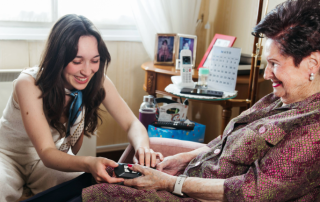Rothkoff Quarterly: Winter 2026
In our Winter 2026 edition, Jerry Rothkoff recounts three examples of client assistance and care that he says “help bring our mission back into clear focus.” Also in this issue: our 2025 Caregiver Award winners, the new Medicare and Medicaid premiums, deductibles and co-payments for 2026, and more. Download Winter 2026 Newsletter











